The opinions expressed in this article are the writers’ own and do not reflect the views of SPU or The Falcon.
Across campus, there is a feeling of detachment — from administration, from each other, from Seattle Pacific University as a whole. We wanted to understand why.
For the entirety of spring quarter, we (Aubrey Rhoadarmer and Ella Beth Sessions) talked and schemed and researched, trying to piece together an explanation for this disconnect. Finally, we decided to start with a question: “Do students care about SPU?” We asked our friends and our classmates and our coworkers; they gave differing versions of “No.”
For some, it was a nuanced response. They could definitively say they cared for their peers, that they cared about their professors and the clubs they had invested all their time into, but they wouldn’t say they cared about the university itself.
We wanted to quantify this feeling. But how? How do you prove something that doesn’t exist? How do you define emotions in numbers and graphs? We found ourselves at a loss for how to turn our disconnect into something digestible. So instead, we went a different route.
On a dreary Wednesday afternoon, we sat in Weter 201 with five of our classmates and asked them how they felt about apathy on SPU’s campus: if it existed at all, and if so, why?
Of course we talked about COVID-19 — the obvious scapegoat. I (Ella Beth) was halfway through my sophomore year of high school when schools shut down in 2020. For the next year, I and so many teenagers did not attend class — or anything — in person. Assignments normally marked late were shrugged off, required final projects became optional, and everyone ended with an A. It was great.
But since 2020, required class attendance and due dates have blurred. COVID didn’t set high schoolers up for the intensity of college, and college-goers during COVID often burnt out. Now, it feels like professors are trying tactic after tactic to just get students — who are paying for their classes — to show up and do the work. Matthew Benton, associate professor of philosophy at SPU, noticed the trend exacerbated over the past two years.
“In the past year, I’ve had a few students who almost never came to class, and would not respond to four or five emails trying to contact them. This sort of thing was unimaginable four years ago,” Benton wrote in an email. “I think some of it must be due to exhaustion and sadness given all that has happened since Covid began, both culturally and here on our campus.”
Callaghan Bluechel is a junior classics and linguistics major and the up and coming student body vice president. During our discussion in Weter 201, he was the first to name the pandemic as a source of apathy in social dynamics and a growing trend in young adults toward introversion.
“Obviously COVID’s the elephant in the room here,” Cal said. “You kind of get the sense that there’s a shrinking perimeter of acceptable social interaction.”
COVID worsened already declining rates of mental health in teenagers and young adults, pairing it with forced isolation and dependency on social media and the digital world. Talking to strangers or interacting with those outside immediate communities is nerve-wracking for me (Ella Beth), and I suspect in this case, I’m not alone.
The pandemic left us all tired. It is not wrong to blame it for some of our apathy, but that’s not the whole story behind indifference at SPU.
In spring 2023, SPU administration announced that 40% of faculty positions would be cut in the following years. The shut down of multiple majors and campus programs, including theatre, music education and human development and family studies followed. Less than a month after these decisions were made public, Provost Laura Hartley was fired by Interim President Pete Menjares with no warning or reason — at least not one made public to students. Menjares then left, and the following academic year Deana Porterfield was inaugurated as the first female president of SPU. The year continued to be one rife with change; at the end of spring 2024, Multi-Ethnic Programming will let go of its director Joyce Del Rosario, with no one to take her place.
“No one wants to invest in SPU because it’s falling apart,” AJ Setala, sophomore Spanish major, said. They referred to SPU as a “sinking ship,” one that students are eager to escape or transfer from before it goes under.
Esther Smith, sophomore PPE major and the incumbent student body president, continued our conversation in her assured politician tone, noting another campus restructure that left students and faculty alike wondering “What is going on?”
“Because of the constant restructuring of SPU, a lot of people are unsure about a lot of things, even like not having a finals week. Nobody was ready for that,” she said, referring to SPU administration’s decision to eliminate an official finals week for the 2023-2024 academic year.
On campus, it feels that anything could change at any time; winter break could be two weeks or six; now we can use meal swipes at Subway! Oh, wait, actually it’s closed; FedEx is where the books used to be and the mailroom’s deserted; my academic counselor said I wouldn’t need that credit anymore but yours did. Tracking these abrupt changes as both students and journalists taught us to feel mildly uncertain and uninformed all the time about our campus.
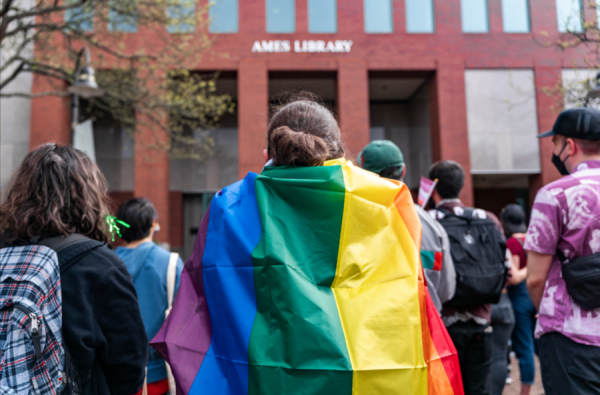
Another important aspect of instability at SPU is the controversy surrounding the LGBTQ+ community that took place over 2021 to 2023. When an adjunct nursing professor sued the university in 2021 claiming he had been denied a full time position due to his sexuality, SPU erupted into chaos. Over the next few years, protests were held, lawsuits were filed, workgroups were organized, research was conducted and yet, nothing changed. The board of trustees voted to maintain the university’s hiring policy, which excludes LGBTQ+ people from serving as full-time faculty.
Despite the historic protests and seemingly wide presence of queer students at SPU, Haven — the queer club on campus — is struggling. AJ, Haven’s treasurer for the 2024-2025 school year, explained that Haven is constantly having to fight to exist.
“We are getting tired as members and leadership of not being seen by the university or being seen in a negative problem light. And the existence of Haven is also assumed, like they’ve been making noise for so long, they seem to have a lot of members and support. It’s like, well, actually we would love it if you showed up,” AJ explained.
Haven club meetings tend to draw a small audience — as littl e as one or two students each week, according to AJ and Gail McMillan, another Haven member set to take on a leadership role for the club in the 2024-2025 year.
e as one or two students each week, according to AJ and Gail McMillan, another Haven member set to take on a leadership role for the club in the 2024-2025 year.

 An obvious indicator of campus disconnect is club involvement, which has visibly declined across campus in recent years. Haven is one of many clubs scraping for membership and leadership alike.
An obvious indicator of campus disconnect is club involvement, which has visibly declined across campus in recent years. Haven is one of many clubs scraping for membership and leadership alike.
“I think a lot of people are just like, trying to get through and not really trying to have fun or do a bunch of stuff,” Esther said, having seen the decline in real time as the student body vice president for the 2023-2024 year.
While many clubs are struggling with involvement, Esther pointed out there are clubs that are thriving — SPU’s cultural clubs, including Ohana O’Hawaii and PICCA.
“Clubs that are doing the best are the cultural clubs. Why? Because they actually found some unity. They found something that they have in common, they found something that they can get behind that they feel safe and confident,” Esther said. “Maybe there’s a reason why people don’t feel super welcomed in clubs that are not cultural clubs. Maybe that is a part of it. Maybe there’s racial undertones, you know, and so I think that that’s something to keep an eye on.”

The cultural clubs have found something that unites them. Maybe, we wondered, the disconnect on SPU has happened because there is nothing that brings us together. We cannot bond over our shared love of our school when many of us are embarrassed to attend a university that holds these values. We cannot bond over our clubs or extracurriculars because we have to burn ourselves out keeping our own clubs alive; we have no time to be involved in any others.
I (Aubrey) have been on The Falcon since I stepped foot on SPU’s campus in fall of 2020. Since then, I have served in three editor positions and am ending my senior year as Editor-in-Chief. Over the past four years, I have spent too many hours thinking about how to make The Falcon more organized, how to increase our engagement, how to recruit new writers. But amidst a student body stretched thin to the point of breaking, improving The Falcon felt like pushing a boulder up a hill.
We lost writers every quarter to overwhelming class loads or other clubs that took up their time. We were attempting to make content with little to no equipment and no budget to buy more. Yet, we were still striving to produce the same quality and quantity we did pre-pandemic. It was an impossible mission that I was unwilling to abandon. I was willing to burn myself out for the chance that my work might make some impact.
Maya Nasralla, junior sociology and social justice and cultural studies major, will fill the role of president in the 2024-2025 academic year for SPU’s Her Campus chapter. She has been involved with Her Campus, a nationwide online magazine, for the past three years, including in 2022 when SPU’s board of trustees voted to maintain the hiring policy.
“I feel like when SPU made their decision, for me, that was a turning point in club involvement, specifically in Her Campus,” Maya explained. “I saw that people weren’t proud to go to SPU anymore. We’re the homophobic school in Seattle and people are like, not super proud to be here and are just trying to get through and graduate.”
SPU is in a period of financial and cultural transition, exacerbated by accompanying transitions within higher education nationally; i.e. the cost.
During our discussion in Weter 201, Gail, a sophomore studying psychology, relayed to us a conversation they had the previous day with Erin Hallquist, a friend and fellow Haven member.
“I was talking with her about this [topic] yesterday and she said a lot of people come to college with the expectation that it’s going to be a transactional experience rather than a transformational experience,” Gail said.
Later that week, we continued our conversations with others on campus, including Micah Lim, senior communications major, who spoke at length about the problem Gail introduced.
“Students walk in here with the expectation of something that is gonna be really meaningful for their life,” Micah said. “And professors and staff and faculty do want to give that to you because that’s what education is supposed to be and that’s why they live for it.”
But why is that not the case? Micah points to finances.
“When I’m talking about general trends of what college is becoming, and how it’s more transactional, it just straight up is more expensive,” Micah said.
Since 2004, the average price of tuition at private universities has increased from $20,150 to $46,652 according to U.S. News & World Report.
Matt Bellinger, an associate professor of communications at SPU, shared many of Micah’s sentiments.
“There’s a distinction between getting a degree and getting an education,” he explained. “If I’m a student and I’m just here to get a degree, then why should I care about the rest of the stuff?”
Bellinger sees apathy as a reasonable response to the shift in college culture; if students only attend SPU for the piece of paper they get at the end, of course they are not going to invest their time and energy into clubs, events or organizations.
He explained that an “education” transforms a student and expands their mind, allowing them to take on new challenges and new questions they never could have before. This is something that SPU professors hope and strive to give their students — but it is increasingly difficult as SPU remains on shaky ground.
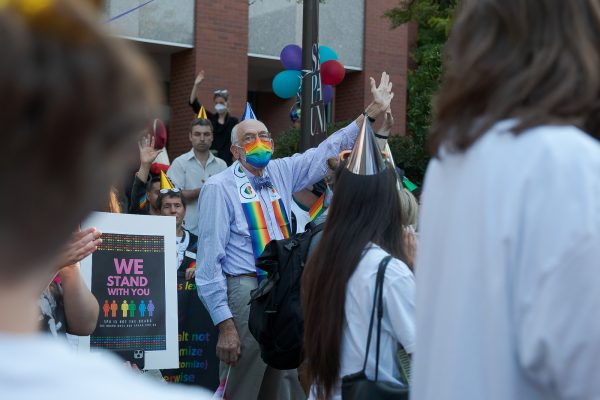
“I think it hits for faculty members even harder because a lot of the messages that are sent to faculty about what it means to join the university and that sort of thing really stresses vocation really, stresses ‘This is a calling, not just a job,’” Bellinger said. “You come to SPU, you are going to be connecting with students and that’s a really important thing. You’re going to go to theater performances, sporting events, all these things. This is not just show up and teach your classes, you’re really part of the community. But it’s a community that has just been beat over the head with a huge stick every quarter. And at a certain point, I think people are so traumatized that the only thing they can do is self preserve.”
AJ agrees.
“Professors want to invest in us so badly, at least that’s the sense I’ve gotten, they want to invest in us, but they’re leaving or they want to invest in us, but their department is falling apart, but the major’s getting canceled,” they said.
With nationwide increases in college tuition, SPU’s ever-shifting administration, years and years of protest, continued effects of COVID-19 and more, how can students be expected to care?
Because we have to care.
“I think a counter force to apathy is community,” Bellinger said. “People are more likely to care when they feel cared about.”
We are not trying to say that SPU is a bad school filled with bad people where we have never felt cared for. Both of us have found community here: friends we love, professors who inspire us, editors who push us. But apathy is palpable at SPU — and this article should serve as the first step of talking about it, of proving something that doesn’t exist, and maybe making it exist again.
“It’s tough to leave, especially when your four years have felt so turbulent, with COVID and protests,” Micah said. “You’ve felt you’re on your own this whole time, I think a lot of students have gotten good at it. But maybe we forget what it’s like to be taken care of. Yeah, and maybe that we’ll be okay in the end. I don’t know.”
June 6 – this story was lightly edited for accuracy and clarity.
















































































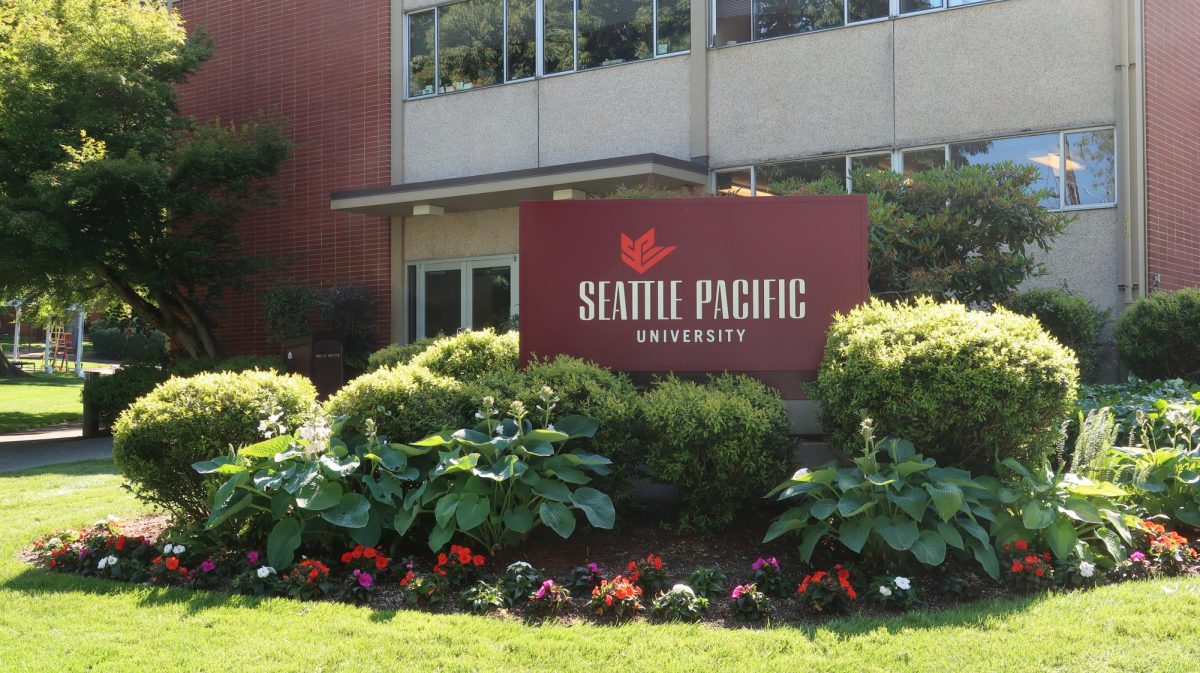


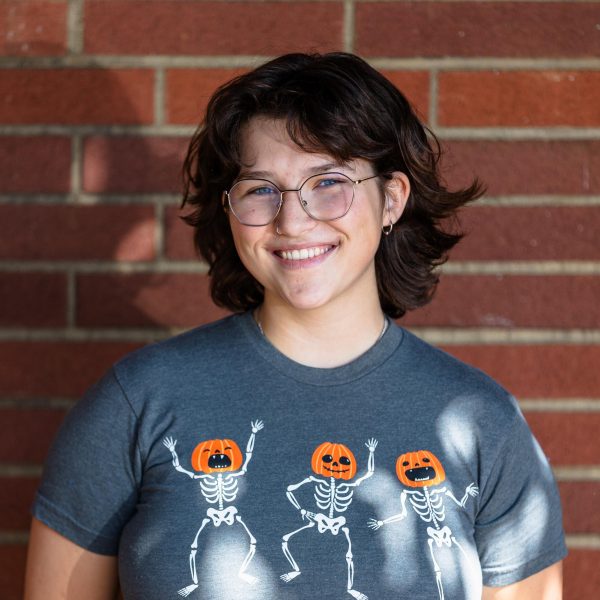
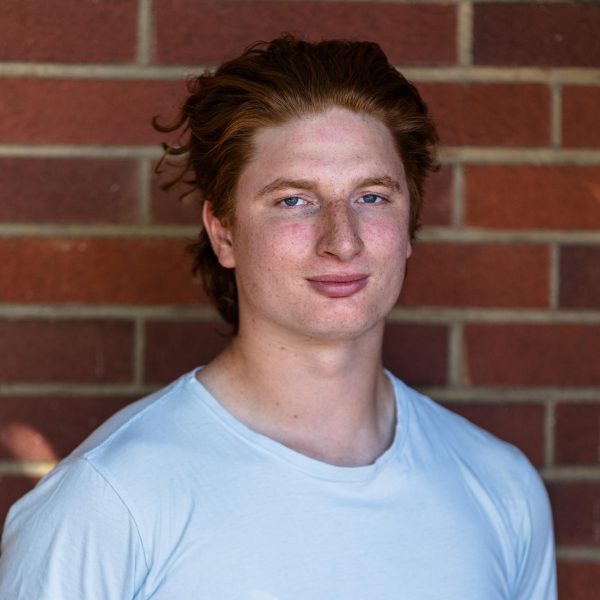
Anonymous • Jun 6, 2024 at 5:06 pm
Depressing but good article. I share the lack of enthusiasm for SPU I once had. I wonder if alumni donations to the school are dramatically down.
Maybe one reason Haven attendance is down is LGBTQ+ students aren’t choosing to attend SPU anymore; if it’s known as “the homophobic school in Seattle” why would they?
Former student • Jun 6, 2024 at 10:58 am
I am a 2014 graduate and 2015 masters graduate, and have fond memories of my time at SPU- community, fantastic professors, and competitive majors and programs. While I haven’t been at SPU since 2015, I live in the area and have observed much of what was mentioned in this article.
I am no longer proud to tell people I graduated from SPU and try to avoid mentioning it if possible- it really does have the reputation as the homophobic school.
I also often wonder if changes in resident life affected community. I lived in Hill Hall for my first two years at SPU and much of my community was formed from my floor- it felt almost like being in a sorority, to the point where family members younger than me were placed on the same floor as I was when they were at SPU. As a freshman, I had sophomores on my floor who were like mentors to me and helped with the transition to college. We had traditions that were a part of living on a certain floor for decades. When SPU changed the dorms to only house certain years, I feel like those traditions and the community was lost.
I do believe COVID was a major factor in this, but I believe cultural shifts within the SPU community and nationally have really taken SPU to a dark place, and I grieve the loss of what used to be.